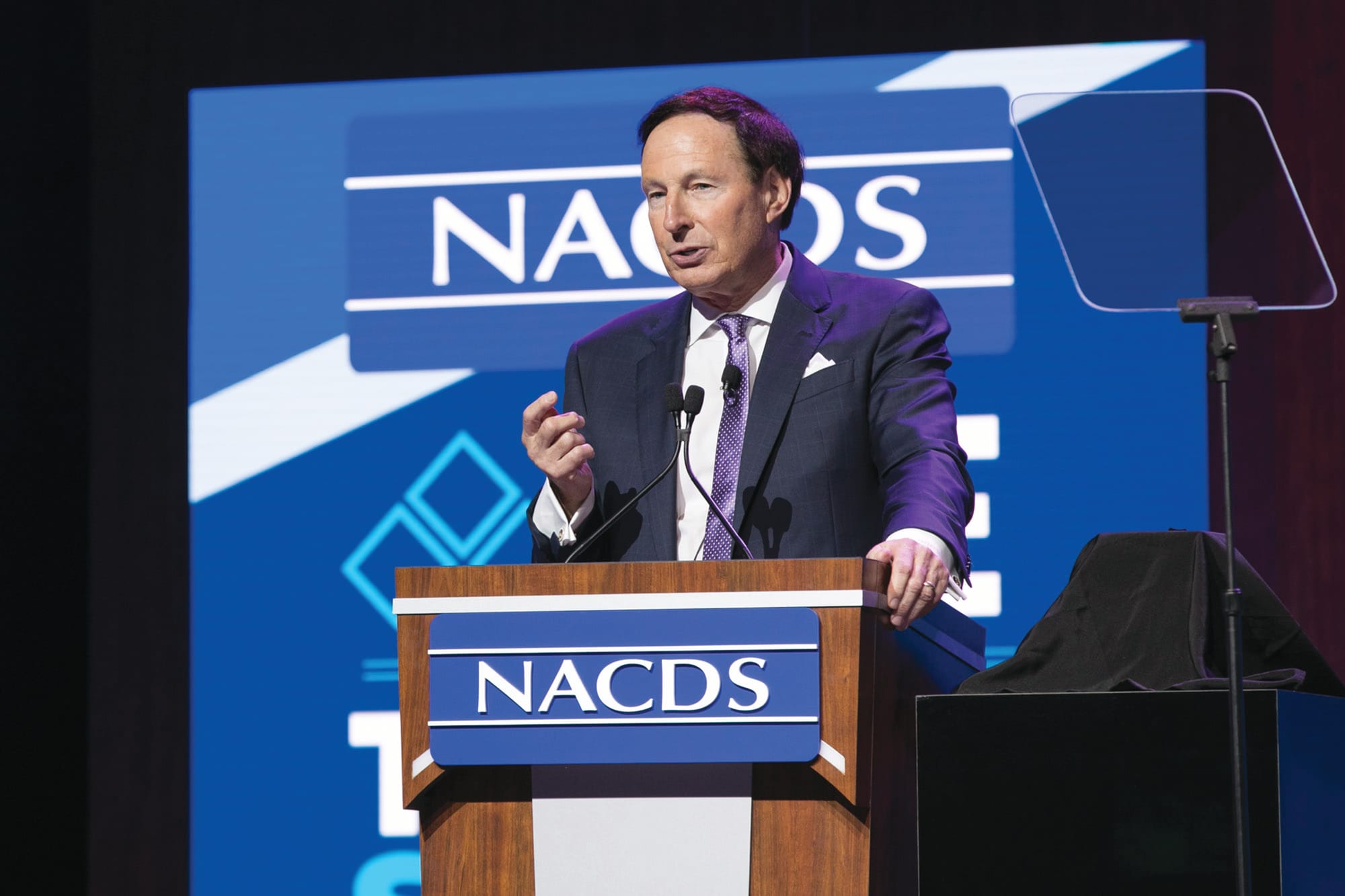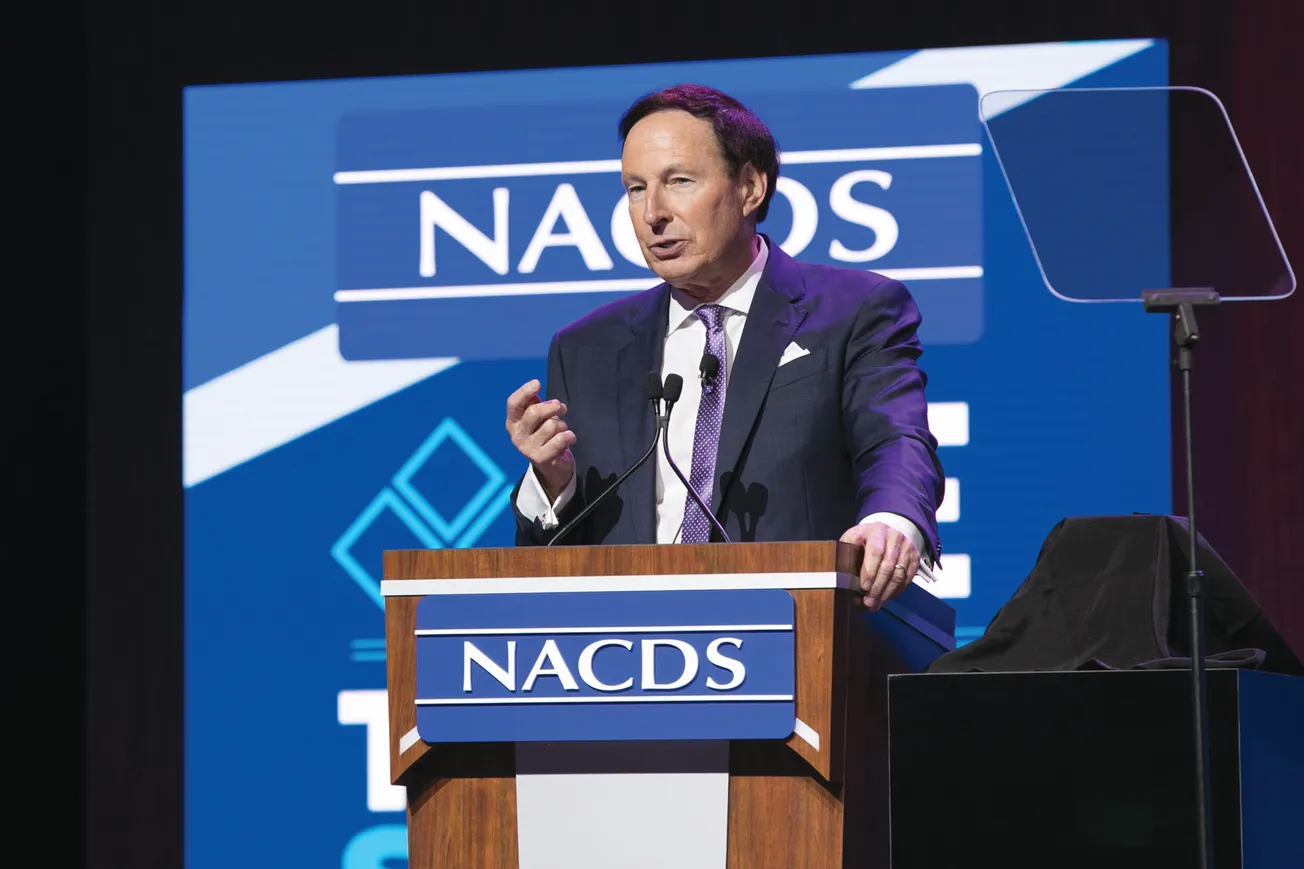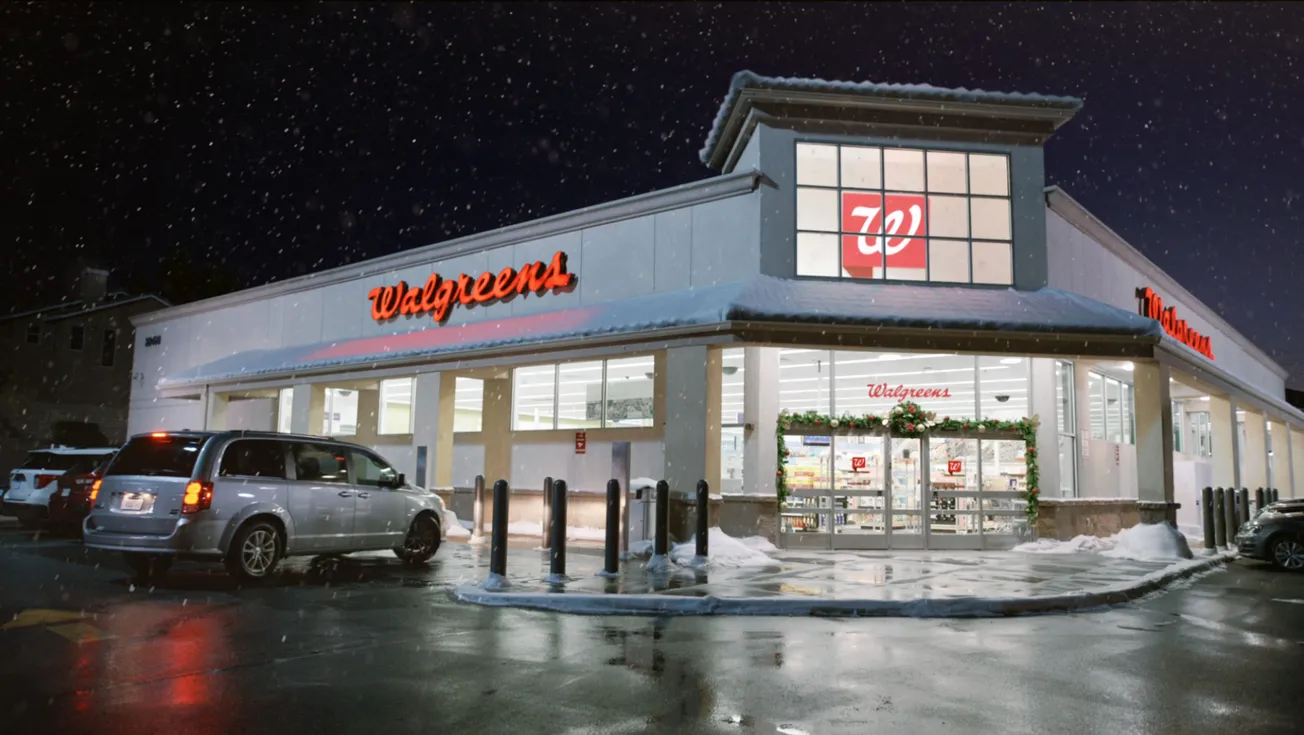
Steve Anderson
ARLINGTON, Va. — The National Association of Chain Drug Stores has endorsed S. 2645, the Access to Increased Drug Disposal Act of 2018, which is consistent with the spirit of NACDS’ policy recommendations to help address the opioid abuse epidemic.
Sen. Joni Ernst (R., Iowa) introduced the legislation, with the bipartisan original co-sponsorship of Sen. Chuck Grassley (R., Iowa) and Sen. Richard Blumenthal (D., Ct.).
The bill would create a demonstration program to provide federal grant funding to five states to assist drug disposal authorized collectors with the cost of purchasing, installing, and maintaining drug take-back kiosks; the cost of disposing of collected unwanted prescription drugs; and the cost of training staff in operating the kiosks with the goal of improving take-back programs and participation in the states.
In a letter to Ernst, NACDS president and CEO Steve Anderson wrote: “Chain pharmacies support patient access to safe and effective methods for disposal of unwanted prescription medications. To further such access, NACDS supports policies that accommodate pharmacy participation in a variety of DEA [Drug Enforcement Administration] authorized options for prescription drug disposal programs, including take-back kiosks in pharmacies. Through the provision of federal funding to operate take-back kiosks in various communities, the act encourages more pharmacies to volunteer to host take-back kiosks. Passage of the act would be a key component of a broader and more diversified effort to assist consumers with safely and effectively disposing of their unwanted prescription drugs.”
The flexibility and state focus of the legislation is consistent with the spirit of policy recommendations announced and advocated by NACDS. In addition to drug disposal, NACDS’ recommendations involve limits on initial opioid prescriptions for acute pain; mandatory electronic prescribing; and creation of a nationwide prescription drug monitoring program.
NACDS’ recommendations were crafted based on pharmacists’ experience on the front lines of health care delivery, and to complement pharmacy’s initiatives and ongoing collaboration with other health care professionals and with law enforcement, in areas including: drug disposal; patient education; compliance programs; advancing electronic prescribing; security initiatives; fostering naloxone access; stopping illegal online drug-sellers and rogue clinics; and more.






